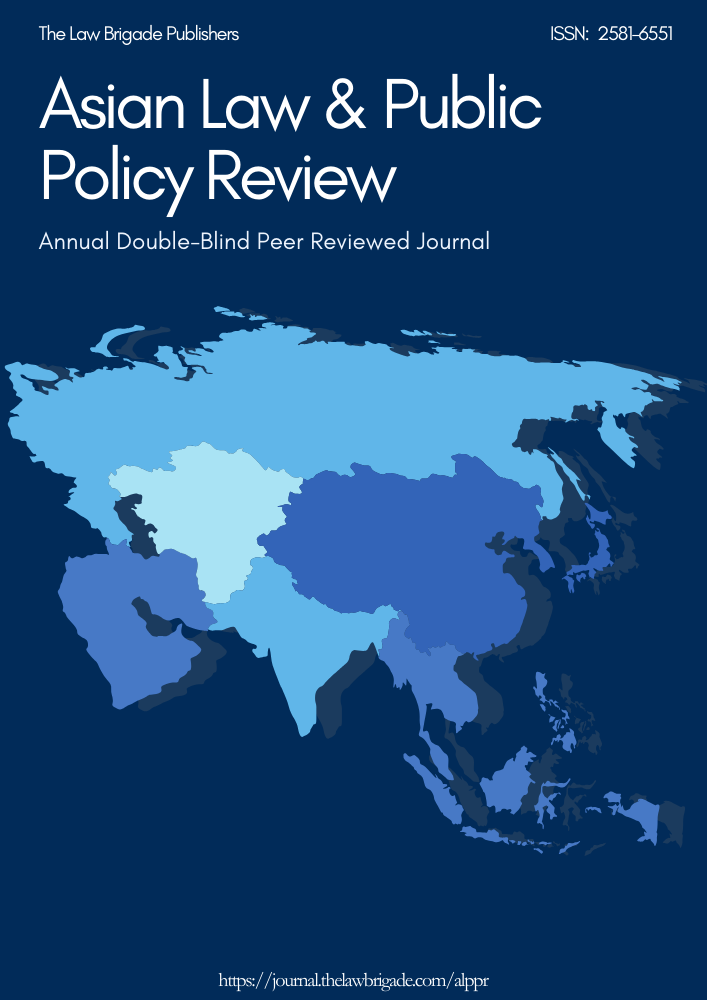Mob Lynching In India: Sine Qua Non Of Legal Intervention
Keywords:
Mob Lynching, Violence, Religion, Legality, CasteAbstract
The mob lynching in India has become common in recent time. Lynching means the death of someone by a mob without legal approval. The major reasons of mob lynching in India are caste, religion, region, politics, witch hunting and intolerance. Ranging from 1857 revolt, 1947 partition, community riots to religious riots have been witnessed of major cases of mob lynching. There is no national law on mob lynching; however, victims have the protection of human rights and constitutional rights to get justice. In a recent judgment of Tehseen S Poonawala, Supreme Court laid down preventive, remedial and punitive measures to restrain the violence. This paper will be dealing with a study on various cases identifying with lynching all over India and the role of legal machinery in curbing the menace.
Downloads
Downloads
Published
Issue
Section
License

This work is licensed under a Creative Commons Attribution-NonCommercial-ShareAlike 4.0 International License.
License Terms
Ownership and Licensing:
Authors of research papers submitted to any journal published by The Law Brigade Publishers retain the copyright of their work while granting the journal specific rights. Authors maintain ownership of the copyright and grant the journal the right of first publication. Simultaneously, authors agree to license their research papers under the Creative Commons Attribution-ShareAlike 4.0 International (CC BY-SA 4.0) License.
License Permissions:
Under the CC BY-SA 4.0 License, others are permitted to share and adapt the work, even for commercial purposes, provided that appropriate attribution is given to the authors, and acknowledgment is made of the initial publication by The Law Brigade Publishers. This license encourages the broad dissemination and reuse of research papers while ensuring that the original work is properly credited.
Additional Distribution Arrangements:
Authors are free to enter into separate, non-exclusive contractual arrangements for distributing the published version of the work (e.g., posting it to institutional repositories or publishing it in books), provided that the original publication by The Law Brigade Publishers is acknowledged.
Online Posting:
Authors are encouraged to share their work online (e.g., in institutional repositories or on personal websites) both prior to submission and after publication. This practice can facilitate productive exchanges and increase the visibility and citation of the work.
Responsibility and Liability:
Authors are responsible for ensuring that their submitted research papers do not infringe on the copyright, privacy, or other rights of third parties. The Law Brigade Publishers disclaims any liability for any copyright infringement or violation of third-party rights within the submitted research papers.


